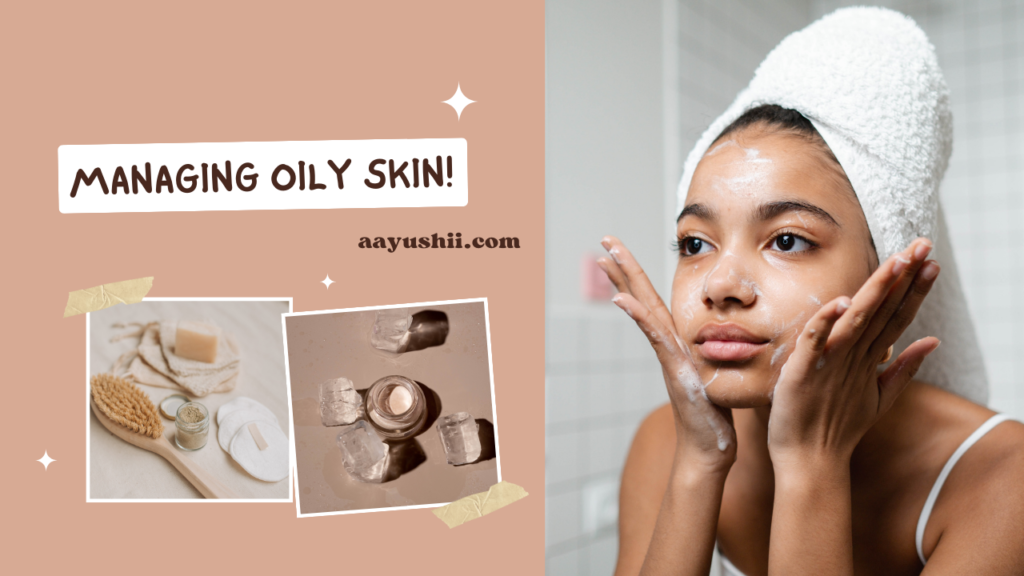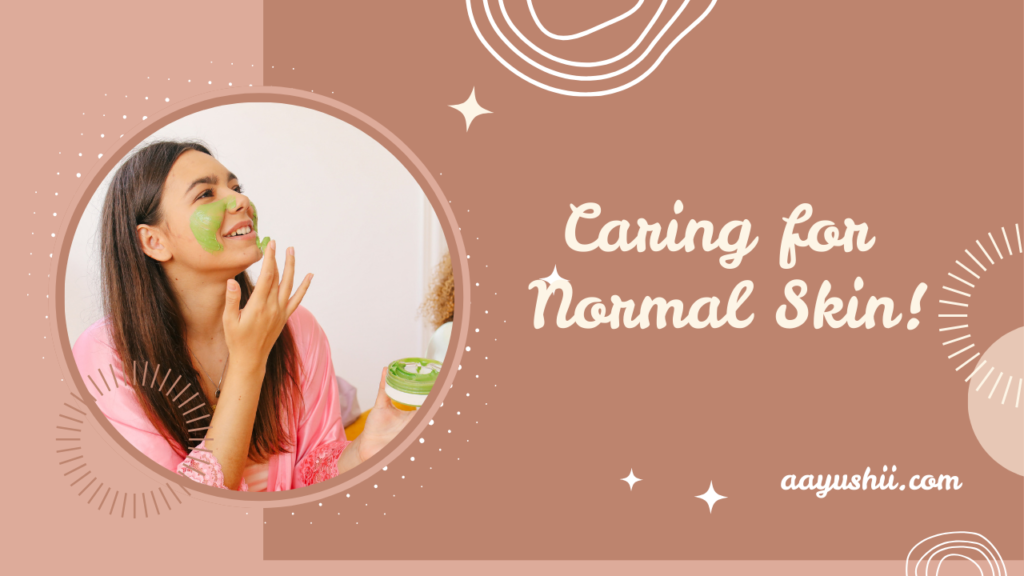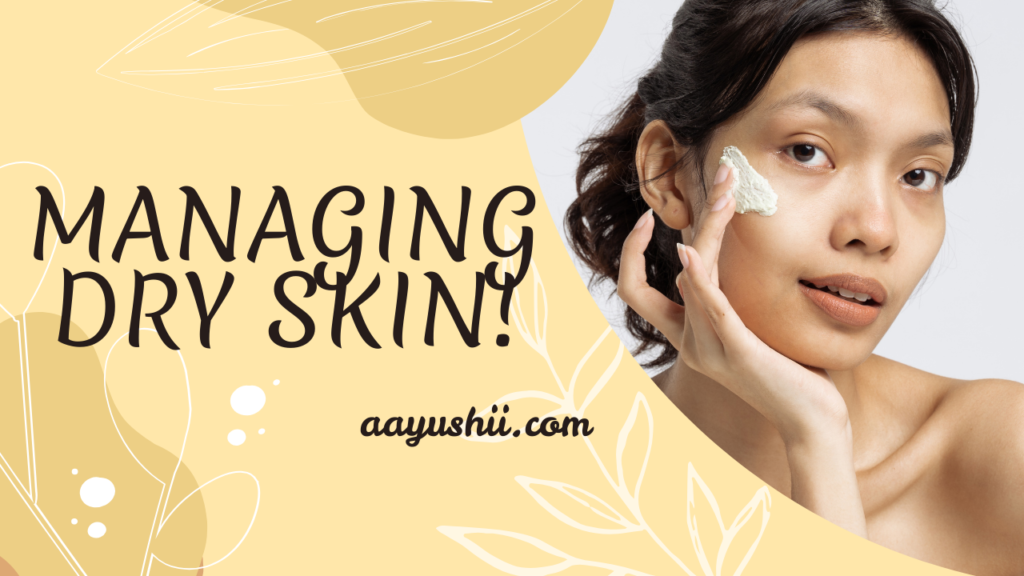Oily skin is a common skin type, characterized by an overproduction of sebum, the natural oil produced by sebaceous glands. While oil is essential for keeping the skin hydrated and protected, excessive oil can lead to problems like clogged pores, acne, and a shiny complexion. Fortunately, with the right skincare routine and scientifically proven ingredients, you can manage oily skin effectively. This article will explore the causes of oily skin, the science behind it, and the best products and ingredients to help control sebum production.
What Causes Oily Skin?
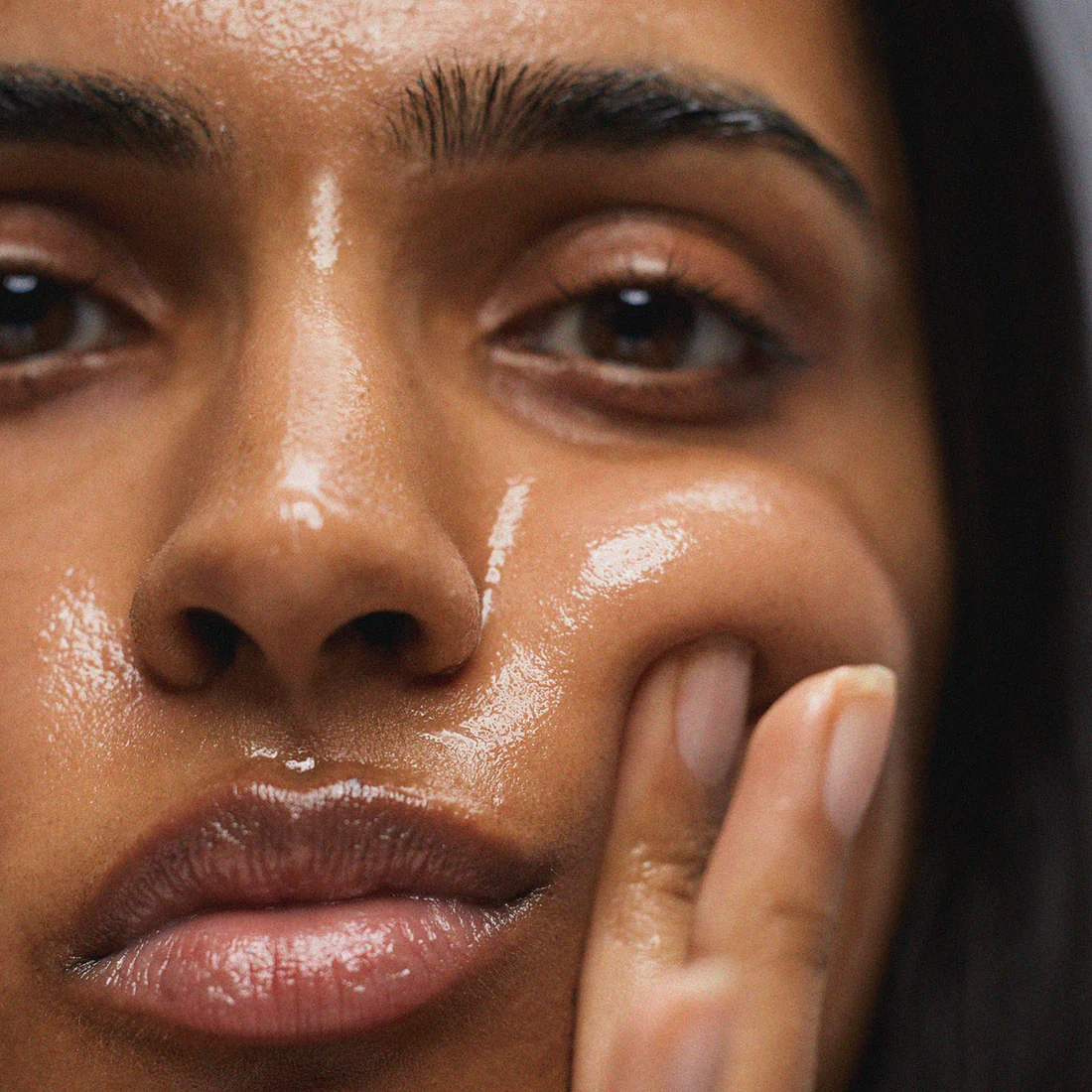
Oily skin is primarily caused by an overproduction of sebum. Several factors contribute to this excess oil, including genetics, hormonal changes, diet, lifestyle, and environmental factors. Let’s break them down:
1. Genetics and Sebaceous Gland Activity
Genetics plays a significant role in determining your skin type. Sebaceous glands, responsible for oil production, vary in size and activity from person to person. People with oily skin tend to have larger sebaceous glands that are more active, producing more sebum. This trait is inherited, which is why if your parents had oily skin, you may be more likely to have it as well.
2. Hormonal Fluctuations
Hormones, particularly androgens (male hormones), play a major role in regulating sebum production. These hormones stimulate sebaceous glands to produce more oil. Hormonal fluctuations during puberty, menstruation, pregnancy, and even menopause can lead to increased oil production. During puberty, the body experiences a surge in androgens, which explains why many teenagers experience oily skin and acne. Similarly, changes in hormone levels during pregnancy or menstruation often result in increased oil production and breakouts.
3. Diet and Lifestyle
What you eat can influence how much oil your skin produces. A diet rich in refined sugars, processed carbs, and dairy products can stimulate sebaceous glands to produce more sebum. High-glycemic foods, such as white bread, chips, and sugary snacks, cause blood sugar spikes that can increase sebum production. Conversely, diets rich in antioxidants, omega-3 fatty acids, and vitamins such as Vitamin A can help regulate oil production and improve skin health.
4. Environmental Factors
Environmental conditions like temperature and humidity can also affect oil production. In hot and humid conditions, sweat and sebum production increase, leading to a greasy complexion. Pollution can worsen this by clogging pores with dirt and toxins, which stimulates the sebaceous glands to produce more oil. Therefore, individuals living in areas with high humidity or high levels of pollution may notice an increase in oil production during certain seasons or after exposure to these environmental stressors.
5. Skin Care Habits
Sometimes, the skincare products we use can worsen oily skin. Over-washing the face or using harsh products that strip the skin of its natural oils can cause the skin to become dehydrated. In response, the sebaceous glands may produce even more oil to compensate for the loss of moisture. The key is to use gentle, oil-free products that balance the skin’s natural moisture without triggering excess oil production.
Ingredients and Products That Help Control Oily Skin
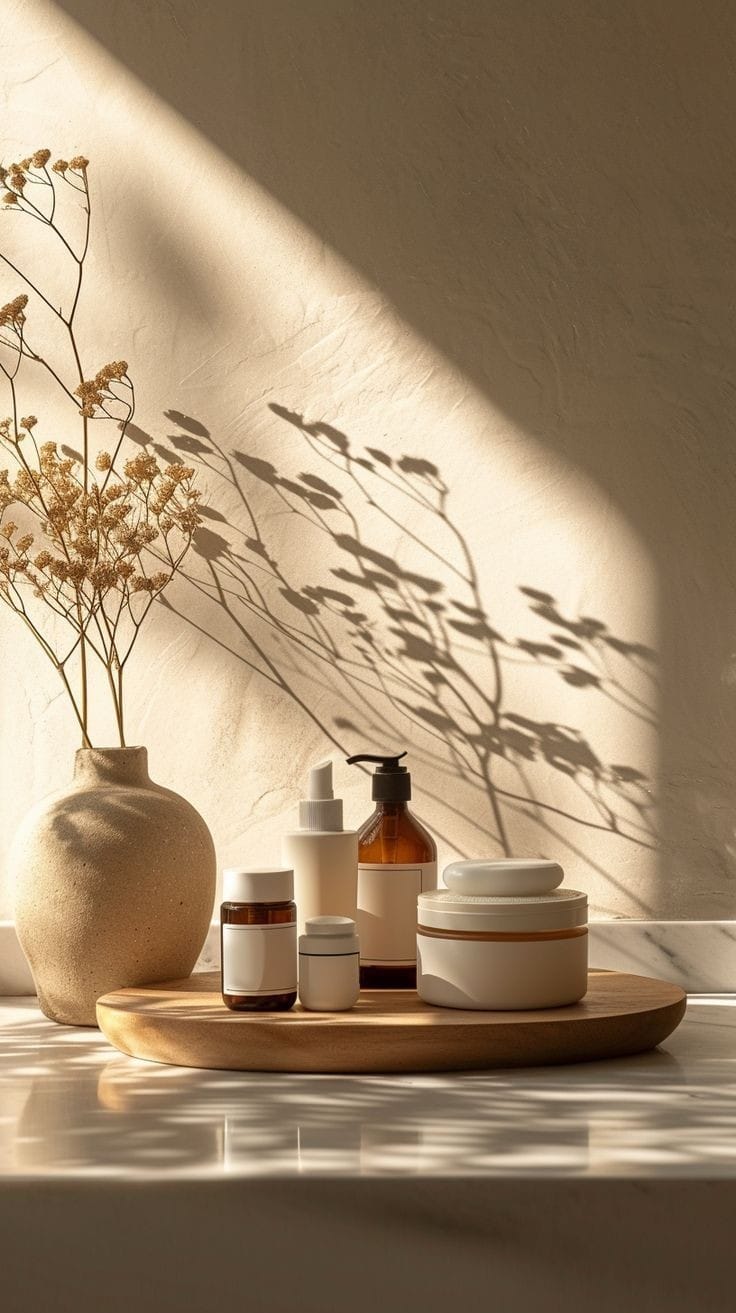
Now that we understand the causes of oily skin, let’s explore the best ingredients and products scientifically proven to help regulate oil production and manage oily skin.
1. Salicylic Acid (Beta-Hydroxy Acid)
Salicylic acid is one of the most effective ingredients for oily and acne-prone skin. As a beta-hydroxy acid (BHA), salicylic acid penetrates deep into the pores, where it helps dissolve oil and debris that can clog pores and cause acne. It also has anti-inflammatory properties, which help reduce redness and swelling from breakouts. By exfoliating the skin and unclogging pores, salicylic acid helps reduce excess oil production and prevent acne.
How It Works:
Salicylic acid’s ability to penetrate pores and dissolve oil makes it an excellent choice for oily skin. Regular use can help control oil production while keeping the skin smooth and clear.
Recommended Products:
- Salicylic acid-based cleansers or toners
- Exfoliating treatments containing 1-2% salicylic acid
2. Niacinamide (Vitamin B3)
Niacinamide, also known as Vitamin B3, is a powerful antioxidant with multiple benefits for oily skin. It helps regulate sebum production, reducing excessive oiliness, and also improves skin texture by minimizing the appearance of pores. Niacinamide’s anti-inflammatory properties can also soothe irritated skin and reduce redness, making it a great option for those with acne-prone skin.
How It Works:
Niacinamide reduces the size of sebaceous glands and limits the amount of sebum they produce. It also strengthens the skin barrier, preventing water loss and keeping the skin hydrated.
Recommended Products:
- Serums containing 5% niacinamide
- Moisturizers or sunscreens with niacinamide for oil control
3. Retinoids (Retinol)
Retinoids, which are derivatives of Vitamin A, are well-known for their ability to regulate skin cell turnover. By encouraging the shedding of dead skin cells, retinoids help prevent clogged pores, a common cause of acne. Retinoids also reduce sebum production by normalizing the activity of sebaceous glands. Over time, they can improve the texture of the skin, reduce pore size, and minimize oil production.
How It Works:
Retinoids increase the rate at which skin cells renew, preventing the buildup of dead skin that can clog pores. They also regulate sebaceous gland function, reducing the amount of oil produced.
Recommended Products:
- Retinol creams or serums (gradually introduce to avoid irritation)
- Prescription-strength retinoids (for more severe cases)
4. Zinc
Zinc is a mineral with proven benefits for oily skin. It has anti-inflammatory and sebum-regulating properties that help reduce oil production and calm irritated skin. Zinc also plays a crucial role in the healing process of acne lesions, promoting faster recovery and preventing scarring.
How It Works:
Zinc regulates the production of sebum by affecting the sebaceous glands, and its anti-inflammatory effects reduce redness and swelling. Additionally, zinc’s ability to balance oil levels can help prevent future breakouts.
Recommended Products:
- Zinc-based topical creams or serums
- Sunscreens containing zinc oxide (especially for oily, acne-prone skin)
5. Clay (Kaolin and Bentonite)
Clay masks, particularly those containing kaolin and bentonite, are excellent for oily skin. These clays absorb excess oil and impurities from the skin, helping to reduce shine and mattify the complexion. They also have a gentle exfoliating effect, which can help unclog pores and prevent acne.
How It Works:
Clay masks absorb oil from the skin’s surface, providing a deep cleanse without irritating the skin. They also help balance oil production by drawing out excess sebum from the pores.
Recommended Products:
- Clay masks containing bentonite or kaolin
- Clay-based cleansers for regular use
6. Hyaluronic Acid
Although oily skin produces excess sebum, it can still be prone to dehydration. Hyaluronic acid is a humectant, meaning it draws moisture into the skin without adding oil. By maintaining hydration, hyaluronic acid helps prevent the skin from becoming dry and irritated, which can lead to an increase in oil production as the skin compensates for the lack of moisture.
How It Works:
Hyaluronic acid binds water to the skin, providing long-lasting hydration without increasing oiliness. This helps keep the skin balanced and prevents it from overcompensating by producing more oil.
Recommended Products:
- Hydrating serums or moisturizers with hyaluronic acid
- Lightweight, oil-free products for moisture retention
Skincare Routine for Oily Skin
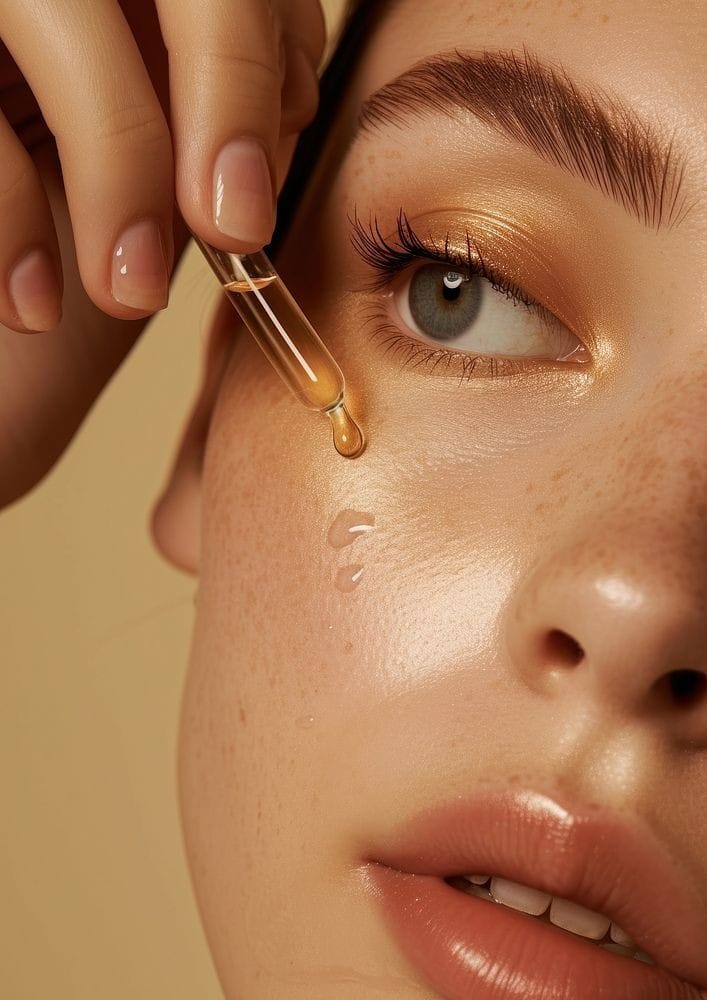
To effectively manage oily skin, consistency is key. Here’s a recommended skincare routine for oily skin:
- Cleansing: Use a gentle, oil-free cleanser with salicylic acid or other acne-fighting ingredients to remove excess oil and prevent breakouts.
- Exfoliating: Incorporate a salicylic acid-based exfoliant or a gentle scrub once or twice a week to keep pores clear.
- Serum: Apply a niacinamide serum to regulate oil production and improve skin texture.
- Moisturizing: Use a lightweight, oil-free moisturizer with hyaluronic acid to keep the skin hydrated without adding extra oil.
- Sun Protection: Choose an oil-free, non-comedogenic sunscreen to protect the skin from UV damage without clogging pores.
Conclusion
Managing oily skin requires a balanced approach that addresses the root causes of excess oil while maintaining healthy skin. By incorporating scientifically proven ingredients like salicylic acid, niacinamide, retinoids, zinc, and clay into your skincare routine, you can regulate oil production, prevent acne, and achieve a clearer, more balanced complexion. Remember, consistency is key, and it’s important to choose products that are specifically formulated for oily skin to achieve the best results.
FAQ: Managing Oily Skin
- What causes oily skin?
Oily skin is primarily caused by overactive sebaceous glands, which produce excess sebum. Factors like genetics, hormonal changes, diet, stress, and environmental conditions can influence oil production. - How can I tell if I have oily skin?
Common signs include a shiny or greasy appearance, enlarged pores, frequent acne or blackheads, and makeup that doesn’t stay in place. - What skincare ingredients are best for managing oily skin?
Look for ingredients like salicylic acid, niacinamide, retinoids, clay, benzoyl peroxide, and alpha hydroxy acids (AHAs). These help control oil, exfoliate, and minimize pores. - Are moisturizers necessary for oily skin?
Yes! Moisturizers keep your skin hydrated and balanced. Opt for lightweight, non-comedogenic, oil-free, or gel-based formulas to prevent clogged pores. - Can oily skin benefit from using oils in skincare?
Certain oils like jojoba and rosehip oil mimic the skin’s natural sebum and can help regulate oil production. Choose non-comedogenic oils if incorporating them into your routine. - How often should I cleanse oily skin?
Cleansing twice a day—morning and night—is recommended. Avoid over-cleansing as it can strip the skin, causing sebaceous glands to produce even more oil. - What are the best types of sunscreens for oily skin?
Use lightweight, oil-free, or gel-based sunscreens labeled as non-comedogenic. Look for formulas with mattifying properties to reduce shine. - How can diet affect oily skin?
Diets high in sugar, dairy, and processed foods can exacerbate oiliness and acne. A balanced diet with whole foods, fruits, vegetables, and healthy fats can support healthier skin. - Are clay masks effective for oily skin?
Yes! Clay masks absorb excess oil, unclog pores, and reduce shine. Use once or twice a week for best results. - Can oily skin improve with age?
Yes, as skin naturally produces less oil with age, those with oily skin may notice reduced oiliness over time. - Is makeup safe for oily skin?
Yes, but choose oil-free, non-comedogenic products, and avoid heavy or greasy formulations. Always remove makeup thoroughly to prevent clogged pores. - What are some quick fixes for midday shine?
Use blotting papers or a mattifying powder to absorb excess oil without disturbing your makeup. - Should I exfoliate oily skin often?
Yes, exfoliation helps remove dead skin cells and unclog pores. However, limit exfoliation to 2-3 times a week to avoid irritation. - What are some common mistakes people with oily skin make?
Over-cleansing, skipping moisturizer, using harsh products, and not using sunscreen are common missteps that can worsen oily skin. - What are some science-backed products for oily skin?
Products containing ingredients like salicylic acid (for exfoliation), niacinamide (to reduce oil), and lightweight gel-based moisturizers are backed by research for managing oily skin. Look for well-reviewed products and consult a dermatologist for personalized recommendations.

